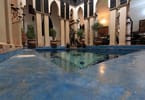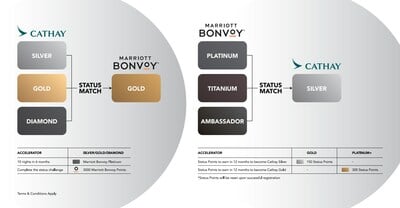HISAR/VELINGRAD, Bulgaria – The town of Hisar boasts one formidable collection — hundreds of kidney-, bladder- and gallstones which have been expelled after treatment with water from the 22 mineral springs in the region.
“We use the water as medicine,” says Doctor Svetya Tuzharov from the rehabilitation hospital in the town, where spa and wellness hotels have mushroomed in recent years.
Hisar, founded by the Romans and once surrounded by high walls to protect the healing springs, is among dozens of resort towns in the Balkan country trying to revive their traditions in balneotherapy and attract well off tourists.
From the Black Sea resorts of Albena and Pomorie in the east to Velingrad and Sandanski in the southwest, new luxurious hotels have already gained a reputation among Bulgarians and foreigners alike for the high quality of their services.
Tourism, which accounts for about eight percent of GDP, remains one of the few sources of foreign revenues for the poorest European Union nation, whose economy shrank five percent last year and is expected to stagnate this year.
Revenues from international tourism were roughly unaffected last year at 2.6 billion euros ($3.46 billion).
Officials registered an annual 7.8 percent increase in visitors to ski resorts in the first two months of this year. Early bookings for the summer season were on the rise, too, with more visitors expected from Germany, Russia and Israel.
Sunny weather, good prices
Before the fall of communism in 1989, people from Scandinavia, the former Soviet bloc and the Middle East were regular guests in Bulgaria’s spas which specialized in treating medical conditions varying from gout to sterility.
But in the past decade, Bulgaria marketed itself almost entirely as a cheap destination for summer and winter holidays, turning its back on its varied natural resources.
Still, the negative consequences of rampant construction in popular ski and Black Sea resorts have forced the Balkan country to find new ways to attract tourists by bringing its spa resorts and historical heritage into the limelight.
Spa tourism has attracted some $5.4 billion in investment in the past five years, according to data by the Bulgarian Union for Balneology and Spa Tourism. Companies from Israel, Russia, Kuwait, Qatar and Oman have already invested or shown interest.
Finns Hejari-Hashemi and Jukka Yrjola, who stayed in a five-star hotel in Velingrad — a charming mountain town that boasts 80 mineral springs — said they were particularly attracted by the warm climate and affordable prices.
“We are both at the age where we enjoy these kinds of spa services,” Hejari-Hashemi, 54, quipped. “This is my first time here but not the last for sure.”
With Europe’s aging population on the rise and the availability of spa services all the year round, government and industry officials hope spa tourism could be the sector’s driving force with an annual growth of 10 percent.
“What we can offer as competitive advantages are the uniqueness of the mineral waters, the ecologically clean locations, the good price-quality balance,” Deputy Economy Minister Ivo Marinov said. “The potential is huge.”
Advertising, good roads needed
The industry is now advertising itself at fairs in Germany, the Balkans, Israel and Russia.
But to lure tourists away from the Czech Republic and Hungary, Bulgaria’s biggest spa competitors in Eastern Europe, the government must start spending more on marketing and revamping Soviet-era potholed roads, railway and bus transport.
Sigrun Lang, president of the European Spas Association, says Bulgaria’s rich natural resources, long-term traditions in balneotherapy and well-qualified specialists in the sector may come to nothing if the country does not market itself.
“It is a country of many opportunities,” Lang told Reuters. “Marketing is most important because if nobody knows that you have great locations, people cannot come.”
Visitors from the West are amazed to discover that Bulgaria has 220 km (137 miles) of Black Sea beaches, and its mountains boast 130 peaks over 2,000 meters (6,560 feet) with excellent skiing and hiking as well as more than 600 mineral springs.
Mention Bulgaria and many in the West will list associations with corruption, but few know it is one of the oldest countries in Europe teeming with Thracian tombs, golden treasures and valleys of roses.
The new center-right government, elected last July, remains oblivious and has allocated a meager 2 million euros for tourism advertising this year. This compared with 12 million euros earmarked by debt-stricken, neighboring Greece — one of the world’s most visited destinations.
Sanus per aquam
The industry has managed to change the common misconception at home that spa resorts are beneficial only to the elderly who complain from pain in the bones. Bulgarians account for some 80 percent of the visitors in the high-end wellness hotels.
People in their 30s and 40s who once went to “to the baths” with their grandparents or on organized school trips are now coming back to take advantage of the remedies and keep fit.
“Friends recommended it. We haven’t been here since we were kids,” said dentist Ivanka Ivanova, 33, speaking near the pool of her Velingrad hotel. “We like it. The landscape is great.”
The big share of Bulgarian tourists seems paradoxical for a country where the average monthly salary is about 250 euros and the economic crisis is at its peak. Hotel managers say their clients are mainly people of means, whose numbers rose earlier this decade during six or seven years of booming growth.
The spa industry union says tourism’s share of GDP could double in the next three years if Bulgaria established itself at the European market as a full year destination betting on spa and cultural tourism which can be easily combined together.
“With what it has, Bulgaria can turn into a mecca for balneology,” said Rumen Draganov, head of the Institute for Analysis and Assessment in Tourism. “But it needs a strategy.”
WHAT TO TAKE AWAY FROM THIS ARTICLE:
- From the Black Sea resorts of Albena and Pomorie in the east to Velingrad and Sandanski in the southwest, new luxurious hotels have already gained a reputation among Bulgarians and foreigners alike for the high quality of their services.
- Hisar, founded by the Romans and once surrounded by high walls to protect the healing springs, is among dozens of resort towns in the Balkan country trying to revive their traditions in balneotherapy and attract well off tourists.
- With Europe’s aging population on the rise and the availability of spa services all the year round, government and industry officials hope spa tourism could be the sector’s driving force with an annual growth of 10 percent.






















